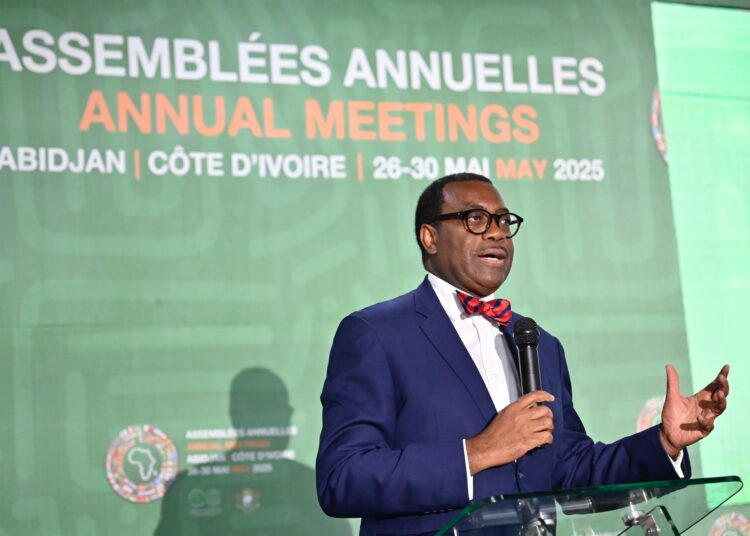In a landmark address at the 2025 Annual Meetings of the African Development Bank (AfDB), Dr. Akinwumi Adesina, President of the Bank, announced a remarkable expansion of the institution’s capital base — from $93 billion in 2015 to an impressive $318 billion in 2025. This more than threefold increase, achieved under his decade-long leadership, underscores the Bank’s strengthened financial capacity and its transformative impact across the African continent.

Delivering what will be his final address as President, Adesina reflected on a tenure marked by bold reforms, strategic innovation, and substantial development achievements. “This will be my last Annual Meetings as President — a special moment to reflect on the journey and give a public account of the stewardship you entrusted to me,” he said. “I am extremely grateful to each of you, Your Excellencies, for your confidence and personal support over the past ten years.”

Transformative Impact Across Africa
Under Adesina’s leadership, the AfDB approved $102 billion in development projects — nearly 46% of all approvals since the Bank’s establishment in 1964 — and disbursed $59 billion in funding. These investments directly impacted 565 million lives over the decade:

28 million people gained access to electricity
104 million achieved food security
121 million benefited from improved transport infrastructure
128 million accessed enhanced health services
67 million had better access to information and communication technology
63 million received access to safe drinking water
34 million gained improved sanitation facilities
The Bank also accelerated regional integration, particularly through large-scale infrastructure projects that support the African Continental Free Trade Area (AfCFTA).
Flagship Initiatives and Financial Innovation
Several landmark initiatives were launched during Adesina’s tenure. Among them:
Africa50, a private equity platform, now manages over $7 billion in infrastructure investments.
The African Investment Forum, which has mobilized $225 billion in investment interest across the continent.
The African Adaptation Acceleration Program, the continent’s largest climate initiative, to which the Bank committed $25 billion.
On the financial front, the AfDB demonstrated global leadership and innovation. In 2015, it pioneered synthetic securitization — a first for multilateral development banks. In 2024, it again led the field by issuing $750 million in hybrid capital, boosting its capacity to support member countries.
Despite global disruptions such as the COVID-19 pandemic, the AfDB maintained its AAA credit ratings from Fitch, Moody’s, and Standard & Poor’s for ten consecutive years. A recent independent governance review confirmed the Bank’s strong oversight mechanisms and reaffirmed its global credibility following previous scrutiny.
The AfDB earned several accolades during Adesina’s presidency. It was named Best Multilateral Financial Institution, and in 2024, the NGO Publish What You Fund ranked it the most transparent financial institution in the world, awarding it a record 98.8% transparency score.
Strategically, the Bank strengthened its alignment with key continental institutions and initiatives, including the African Union, AfCFTA, and the Africa CDC. It also spearheaded the creation of the African Financial Stability Mechanism, Africa’s first g safety net designed to protect economies from systemic shocks.
“We have built a world-class financial institution — one that will continue to advance Africa’s position in a rapidly changing global environment,” Adesina declared. He extended heartfelt appreciation to the Board of Governors, executive directors, and the Bank’s staff, attributing the successes to a collective effort.
As Dr. Adesina prepares to step down, he leaves behind a significantly stronger African Development Bank — financially robust, globally respected, and better equipped than ever to support the continent’s development aspirations.













